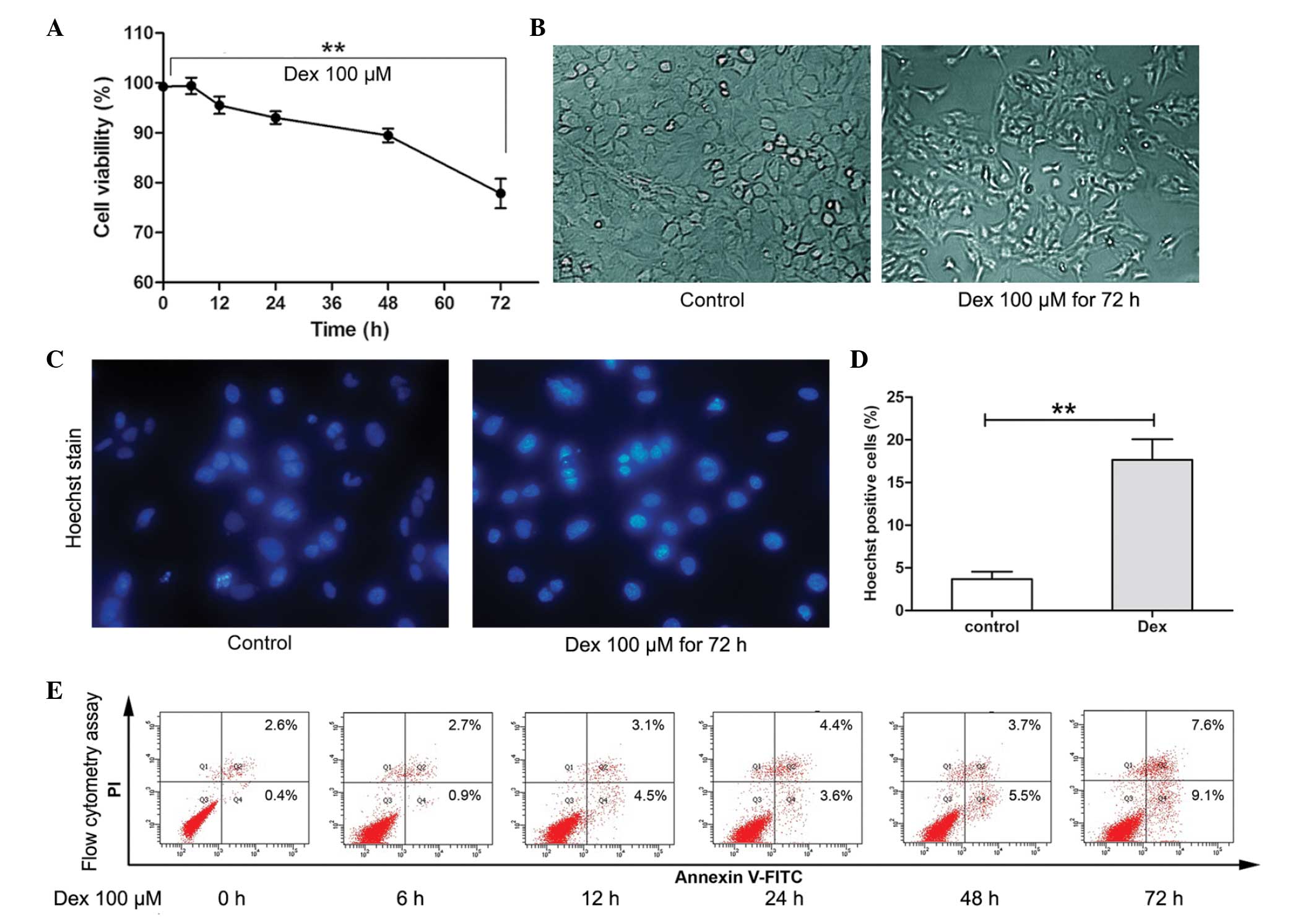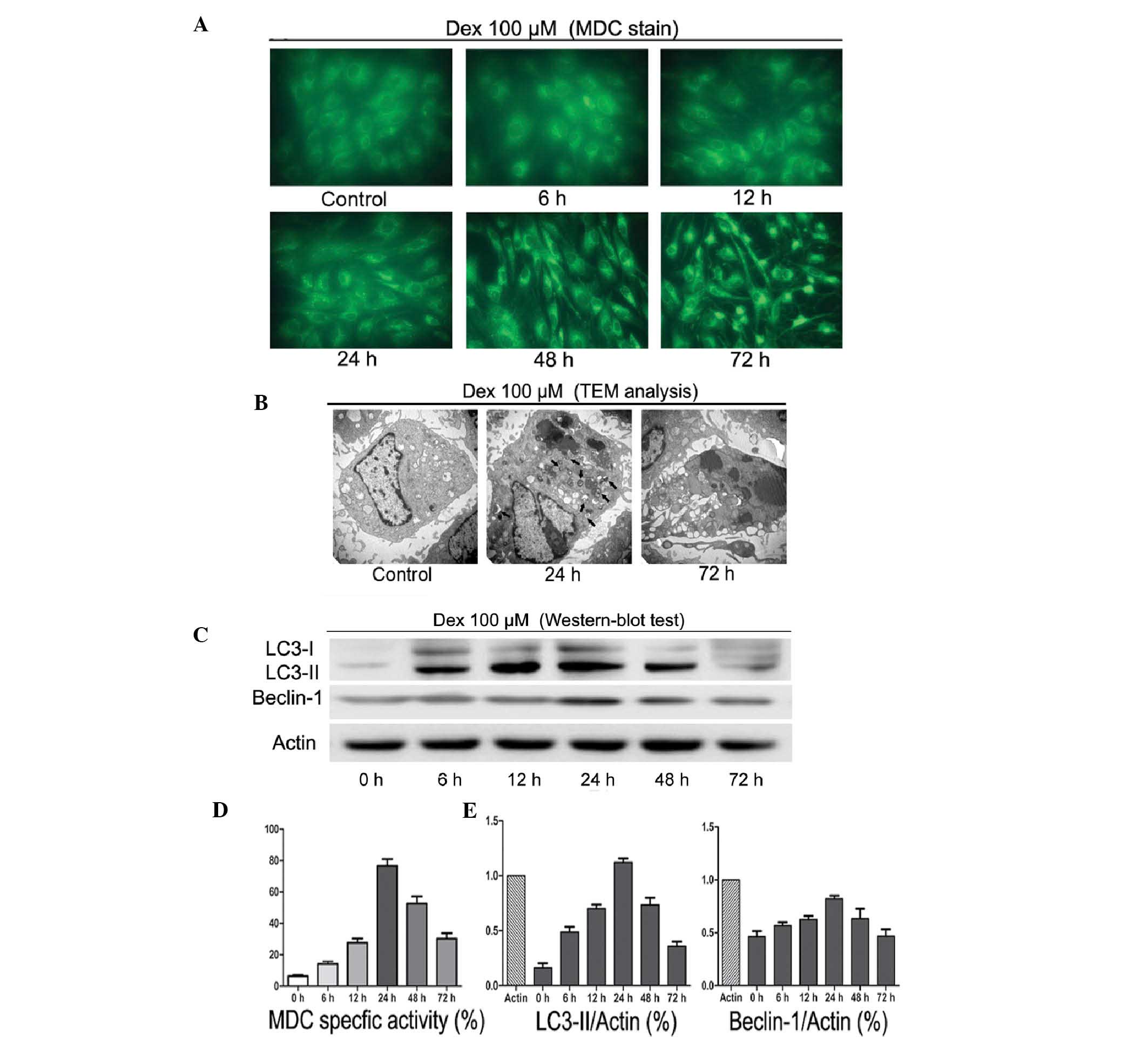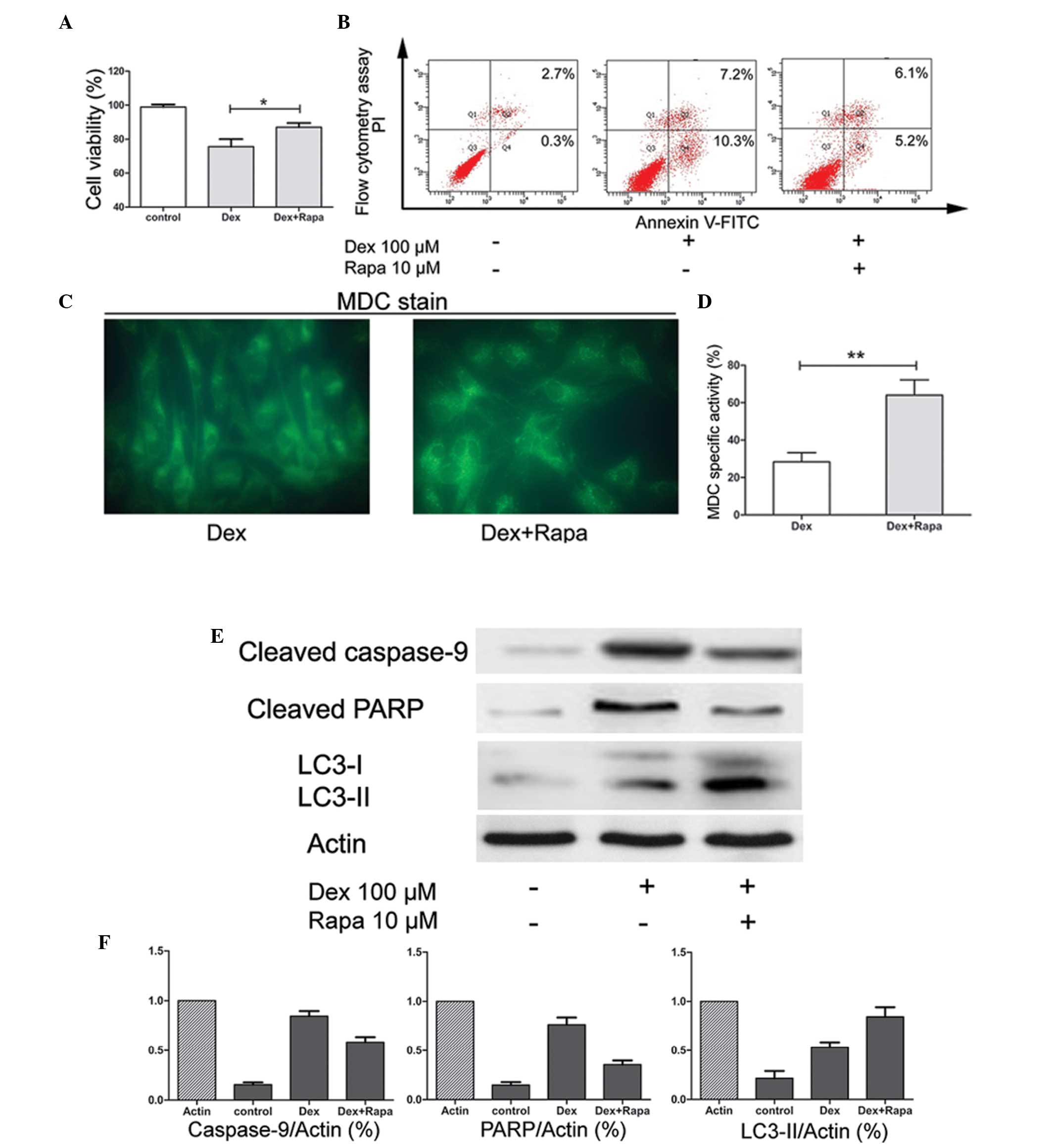|
1
|
Felson DT and Zhang Y: An update on the
epidemiology of knee and hip osteoarthritis with a view to
prevention. Arthritis Rheum. 41:1343–1355. 1998. View Article : Google Scholar : PubMed/NCBI
|
|
2
|
Larsson E, Erlandsson Harris H, Larsson A,
Månsson B, Saxne T and Klareskog L: Corticosteroid treatment of
experimental arthritis retards cartilage destruction as determined
by histology and serum COMP. Rheumatology (Oxford). 43:428–434.
2004. View Article : Google Scholar : PubMed/NCBI
|
|
3
|
Hollander JL: Intra-articular
hydrocortisone in arthritis and allied conditions; a summary of two
years’ clinical experience. J Bone Joint Surg Am. 35-A:983–990.
1953.PubMed/NCBI
|
|
4
|
Flanagan J, Casale FF, Thomas TL and Desai
KB: Intra-articular injection for pain relief in patients awaiting
hip replacement. Ann R Coll Surg Engl. 70:156–157. 1988.PubMed/NCBI
|
|
5
|
Friedman DM and Moore ME: The efficacy of
intraarticular steroids in osteoarthritis: a double-blind study. J
Rheumatol. 7:850–856. 1980.PubMed/NCBI
|
|
6
|
Lambert RG, Hutchings EJ, Grace MG,
Jhangri GS, Conner-Spady B and Maksymowych WP: Steroid injection
for osteoarthritis of the hip: a randomized, double-blind,
placebo-controlled trial. Arthritis Rheum. 56:2278–2287. 2007.
View Article : Google Scholar : PubMed/NCBI
|
|
7
|
Hainque B, Dominice J, Jaffray P, Ronot X
and Adolphe M: Effects of dexamethasone on the growth of cultured
rabbit articular chondrocytes: relation with the nuclear
glucocorticoid- recepter complex. Ann Rheum Dis. 46:146–152. 1987.
View Article : Google Scholar : PubMed/NCBI
|
|
8
|
Héraud F, Héraud A and Harmand MF:
Apoptosis in normal and osteoarthritic human articular cartilage.
Ann Rheum Dis. 59:959–965. 2000.
|
|
9
|
Mizushima N, Levine B, Cuervo AM and
Klionsky DJ: Autophagy fights disease through cellular
self-digestion. Nature. 451:1069–1075. 2008. View Article : Google Scholar : PubMed/NCBI
|
|
10
|
Levine B and Kroemer G: Autophagy in the
pathogenesis of disease. Cell. 132:27–42. 2008. View Article : Google Scholar : PubMed/NCBI
|
|
11
|
Martinet W, Agostinis P, Vanhoecke B,
Dewaele M and De Meyer GR: Autophagy in disease: a double-edged
sword with therapeutic potential. Clin Sci (Lond). 116:697–712.
2009. View Article : Google Scholar : PubMed/NCBI
|
|
12
|
Caramés B, Taniguchi N, Otsuki S, Blanco
FJ and Lotz M: Autophagy is a protective mechanism in normal
cartilage, and its aging-related loss is linked with cell death and
osteoarthritis. Arthritis Rheum. 62:791–801. 2010.PubMed/NCBI
|
|
13
|
Caramés B, Kiosses WB, Akasaki Y, Brinson
DC, Eap W, Koziol J and Lotz M: Glucosamine activates autophagy in
vitro and in vivo. Arthritis Rheum. 65:1843–1852. 2013.
|
|
14
|
Shigemitsu K, Tsujishita Y, Hara K,
Nanahoshi M, Avruch J and Yonezawa K: Regulation of translational
effectors by amino acid and mammalian target of rapamycin signaling
pathways. Possible involvement of autophagy in cultured hepatoma
cells. J Biol Chem. 274:1058–1065. 1999. View Article : Google Scholar
|
|
15
|
Cardenas ME, Cutler NS, Lorenz MC, Di Como
CJ and Heitman J: The TOR signaling cascade regulates gene
expression in response to nutrients. Genes Dev. 13:3271–3279. 1999.
View Article : Google Scholar : PubMed/NCBI
|
|
16
|
Dann SG, Selvaraj A and Thomas G: mTOR
Complex1-S6K1 signaling: at the crossroads of obesity, diabetes and
cancer. Trends Mol Med. 13:252–259. 2007. View Article : Google Scholar : PubMed/NCBI
|
|
17
|
Harrison DE, Strong R, Sharp ZD, Nelson
JF, Astle CM, Flurkey K, Nadon NL, Wilkinson JE, Frenkel K, Carter
CS, Pahor M, Javors MA, Fernandez E and Miller RA: Rapamycin fed
late in life extends lifespan in genetically heterogeneous mice.
Nature. 460:392–395. 2009.PubMed/NCBI
|
|
18
|
Pan T, Rawal P, Wu Y, Xie W, Jankovic J
and Le W: Rapamycin protects against rotenone-induced apoptosis
through autophagy induction. Neuroscience. 164:541–551. 2009.
View Article : Google Scholar : PubMed/NCBI
|
|
19
|
Spilman P, Podlutskaya N, Hart MJ, Debnath
J, Gorostiza O, Bredesen D, Richardson A, Strong R and Galvan V:
Inhibition of mTOR by rapamycin abolishes cognitive deficits and
reduces amyloid-beta levels in a mouse model of Alzheimer’s
disease. PLoS One. 5:e99792010.PubMed/NCBI
|
|
20
|
Song YW, Zhang T and Wang WB:
Gluococorticoid could influence extracellular matrix synthesis
through Sox9 via p38 MAPK pathway. Rheumatol Int. 32:3669–3673.
2012. View Article : Google Scholar : PubMed/NCBI
|
|
21
|
Buss LW, Anderson C, Westerman E,
Kritzberger C, Poudyal M, Moreno MA and Lakkis FG: Allorecognition
triggers autophagy and subsequent necrosis in the cnidarian
Hydractinia symbiolongicarpus. PLoS One. 7:e489142012.
View Article : Google Scholar : PubMed/NCBI
|
|
22
|
Dobson F, Hinman RS, Roos EM, Abbott JH,
Stratford P, Davis AM, Buchbinder R, Snyder-Mackler L, Henrotin Y,
Thumboo J, Hansen P and Bennell KL: OARSI recommended
performance-based tests to assess physical function in people
diagnosed with hip or knee osteoarthritis. Osteoarthritis
Cartilage. 21:1042–1052. 2013. View Article : Google Scholar : PubMed/NCBI
|
|
23
|
Van Manen MD, Nace J and Mont MA:
Management of primary knee osteoarthritis and indications for total
knee arthroplasty for general practitioners. J Am Osteopath Assoc.
112:709–715. 2012.PubMed/NCBI
|
|
24
|
Schumacher HR and Chen LX: Injectable
corticosteroids in treatment of arthritis of the knee. Am J Med.
118:1208–1214. 2005. View Article : Google Scholar : PubMed/NCBI
|
|
25
|
Bjordal JM, Klovning A, Ljunggren AE and
Slørdal L: Short-term efficacy of pharmacotherapeutic interventions
in osteoarthritic knee pain: A meta-analysis of randomised
placebo-controlled trials. Eur J Pain. 11:125–138. 2007. View Article : Google Scholar : PubMed/NCBI
|
|
26
|
Olney RC: Mechanisms of impaired growth:
effect of steroids on bone and cartilage. Horm Res. 72(Suppl 1):
30–35. 2009. View Article : Google Scholar : PubMed/NCBI
|
|
27
|
Fubini SL, Todhunter RJ, Burton-Wurster N,
Vernier-Singer M and MacLeod JN: Corticosteroids alter the
differentiated phenotype of articular chondrocytes. J Orthop Res.
19:688–695. 2001. View Article : Google Scholar : PubMed/NCBI
|
|
28
|
Farkas B, Kvell K, Czömpöly T, Illés T and
Bárdos T: Increased chondrocyte death after steroid and local
anesthetic combination. Clin Orthop Relat Res. 468:3112–3120. 2010.
View Article : Google Scholar : PubMed/NCBI
|
|
29
|
Gozuacik D and Kimchi A: Autophagy as a
cell death and tumor suppressor mechanism. Oncogene. 23:2891–2906.
2004. View Article : Google Scholar : PubMed/NCBI
|
|
30
|
He C and Klionsky DJ: Regulation
mechanisms and signaling pathways of autophagy. Annu Rev Genet.
43:67–93. 2009. View Article : Google Scholar : PubMed/NCBI
|
|
31
|
Lires-Deán M, Caramés B, Cillero-Pastor B,
Galdo F, López-Armada MJ and Blanco FJ: Anti-apoptotic effect of
transforming growth factor-beta1 on human articular chondrocytes:
role of protein phosphatase 2A. Osteoarthritis Cartilage.
16:1370–1378. 2008.PubMed/NCBI
|
|
32
|
Blanco FJ, López-Armada MJ and Maneiro E:
Mitochondrial dysfunction in osteoarthritis. Mitochondrion.
4:715–728. 2004. View Article : Google Scholar : PubMed/NCBI
|
|
33
|
Mobasheri A: Role of chondrocyte death and
hypocellularity in ageing human articular cartilage and the
pathogenesis of osteoarthritis. Med Hypotheses. 58:193–197. 2002.
View Article : Google Scholar : PubMed/NCBI
|
|
34
|
Roach HI, Aigner T and Kouri JB:
Chondroptosis: a variant of apoptotic cell death in chondrocytes?
Apoptosis. 9:265–277. 2004. View Article : Google Scholar : PubMed/NCBI
|
|
35
|
Caramés B, Hasegawa A, Taniguchi N, Miyaki
S, Blanco FJ and Lotz M: Autophagy activation by rapamycin reduces
severity of experimental osteoarthritis. Ann Rheum Dis. 71:575–581.
2012.PubMed/NCBI
|
|
36
|
Sasaki H, Takayama K, Matsushita T, Ishida
K, Kubo S, Matsumoto T, Fujita N, Oka S, Kurosaka M and Kuroda R:
Autophagy modulates osteoarthritis-related gene expression in human
chondrocytes. Arthritis Rheum. 64:1920–1928. 2012. View Article : Google Scholar : PubMed/NCBI
|
|
37
|
Almonte-Becerril M, Navarro-Garcia F,
Gonzalez-Robles A, Vega-Lopez MA, Lavalle C and Kouri JB: Cell
death of chondrocytes is a combination between apoptosis and
autophagy during the pathogenesis of Osteoarthritis within an
experimental model. Apoptosis. 15:631–638. 2010. View Article : Google Scholar : PubMed/NCBI
|
|
38
|
Kimball SR and Jefferson LS: Molecular
mechanisms through which amino acids mediate signaling through the
mammalian target of rapamycin. Curr Opin Clin Nutr Metab Care.
7:39–44. 2004. View Article : Google Scholar : PubMed/NCBI
|
|
39
|
Kim MS, Wu KY, Auyeung V, Chen Q, Gruppuso
PA and Phornphutkul C: Leucine restriction inhibits chondrocyte
proliferation and differentiation through mechanisms both dependent
and independent of mTOR signaling. Am J Physiol Endocrinol Metab.
296:E1374–E1382. 2009. View Article : Google Scholar : PubMed/NCBI
|
|
40
|
Chen J, Crawford R and Xiao Y: Vertical
inhibition of the PI3K/Akt/mTOR pathway for the treatment of
osteoarthritis. J Cell Biochem. 114:245–249. 2013. View Article : Google Scholar : PubMed/NCBI
|
|
41
|
Bohensky J, Terkhorn SP, Freeman TA, Adams
CS, Garcia JA, Shapiro IM and Srinivas V: Regulation of autophagy
in human and murine cartilage: hypoxia-inducible factor 2
suppresses chondrocyte autophagy. Arthritis Rheum. 60:1406–1415.
2009. View Article : Google Scholar : PubMed/NCBI
|
|
42
|
Lo YY, Conquer JA, Grinstein S and Cruz
TF: Interleukin-1 beta induction of c-fos and collagenase
expression in articular chondrocytes: involvement of reactive
oxygen species. J Cell Biochem. 69:19–29. 1998. View Article : Google Scholar : PubMed/NCBI
|
|
43
|
Henrotin YE, Bruckner P and Pujol JP: The
role of reactive oxygen species in homeostasis and degradation of
cartilage. Osteoarthritis Cartilage. 11:747–755. 2003. View Article : Google Scholar : PubMed/NCBI
|

















